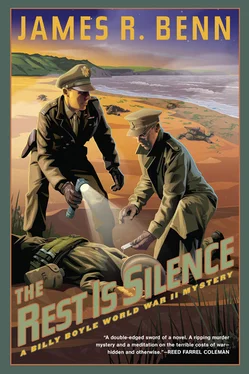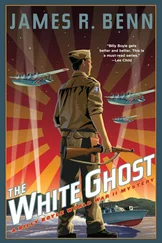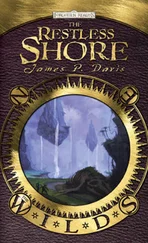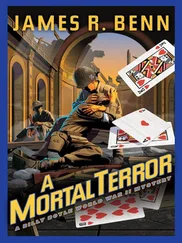James Benn - The Rest Is Silence
Здесь есть возможность читать онлайн «James Benn - The Rest Is Silence» весь текст электронной книги совершенно бесплатно (целиком полную версию без сокращений). В некоторых случаях можно слушать аудио, скачать через торрент в формате fb2 и присутствует краткое содержание. Год выпуска: 2014, ISBN: 2014, Издательство: Random House Publisher Services, Жанр: Шпионский детектив, на английском языке. Описание произведения, (предисловие) а так же отзывы посетителей доступны на портале библиотеки ЛибКат.
- Название:The Rest Is Silence
- Автор:
- Издательство:Random House Publisher Services
- Жанр:
- Год:2014
- ISBN:978-1-61695-267-9
- Рейтинг книги:3 / 5. Голосов: 1
-
Избранное:Добавить в избранное
- Отзывы:
-
Ваша оценка:
- 60
- 1
- 2
- 3
- 4
- 5
The Rest Is Silence: краткое содержание, описание и аннотация
Предлагаем к чтению аннотацию, описание, краткое содержание или предисловие (зависит от того, что написал сам автор книги «The Rest Is Silence»). Если вы не нашли необходимую информацию о книге — напишите в комментариях, мы постараемся отыскать её.
The Rest Is Silence — читать онлайн бесплатно полную книгу (весь текст) целиком
Ниже представлен текст книги, разбитый по страницам. Система сохранения места последней прочитанной страницы, позволяет с удобством читать онлайн бесплатно книгу «The Rest Is Silence», без необходимости каждый раз заново искать на чём Вы остановились. Поставьте закладку, и сможете в любой момент перейти на страницу, на которой закончили чтение.
Интервал:
Закладка:
“Why?” Big Mike asked, taking his lifebelt and trying to cinch it around his waist.
“No, no, that ain’t right,” Yogi said. “Not around the waist. You put it around your chest, right up under your armpits. Then if you gotta go in the water, you inflate it with these CO2 cartridges, here. See? If you wear this around your waist, you end up head over heels in the water, which don’t work so good as far as breathing goes.”
“Okay, got it,” I said as I tightened the belt as high as I could. Big Mike managed to get his on, extending it as far as it would stretch. “But what’s with the name?”
“I played some baseball with the Norfolk Tars in the Piedmont league right before I was drafted,” he said. “I used to sit on the field cross-legged, you know? Like those guys in India? So they started calling me Yogi. A guy from the league was in boot camp with me, so the name followed me into the navy.”
“Okay, Yogi,” I said. “You been on this rocket boat long?”
“Hang on,” Yogi said, as the skipper eased her away from the Bayfield and gave her some throttle. “Yeah, I volunteered back in basic. They asked if any guys wanted to get into the rocket boats, and I was readin’ a Buck Rogers comic book at the time. I guess I thought it was going to be something like that, you know? But here we are, on dry ground, except it’s water. I was kinda disappointed, but I don’t mind. The future just ain’t what it used to be, you know?”
“But …” Big Mike began, and then shook his head, thinking better of it.
“So how do these work, Yogi?” I asked, patting the rocket-launcher tubes as we cleared the harbor.
“Well, you don’t have to worry, they ain’t loaded,” Yogi said. “But when they are, we got twenty-four rockets on each side. All forty-eight go off at once when we get three hundred yards from the beach. They set off mines, blow barbed wire, and generally scare the hell out of the Krauts. Then we got twin fifty-caliber machine guns and two thirty-millimeter cannon, to hit machine-gun nests, or whatever. We go in before the infantry lands, right up front.”
“That’s why the boat is armored,” Big Mike said. The sloping front of the bridge was covered in steel plate, with thin vision slits.
“Yep,” Yogi said. “Gettin’ killed would make our job a lot harder.” There was no arguing with that.
The skipper picked up speed as we got out into the Channel. There wasn’t much room aboard with the crew of seven. The boat was maybe thirty feet long, and with the rocket launchers and all that armament, there wasn’t much space for sightseers. Big Mike and I hung on to the gunwale as we began to bounce over the chop in the grey waters, leaving the shore behind us. The crew manned their weapons, keeping eyes peeled for the Luftwaffe. The wind whipped us, salt spray feeling like sand against our faces.
After five minutes running at full throttle, Raffel eased up and checked with his Machinist’s Mate. The new engine was holding up fine. We proceeded at a slightly slower pace, but fast enough that we still had to hold on as we crested each wave and drove on to the next.
“Port bow,” one of the gunners yelled, and Raffel eased the boat into a turn. There were two Royal Navy corvettes about half a mile out, close in to each other. As we came nearer, I could make out nets in the water, as if they were after fish. But the nets weren’t filled with fish. There were bodies caught up in the netting, most with packs on their backs and many with rifles still slung over their shoulders. It was a gruesome tangle of the drowned and the devastated, some missing limbs, protruding bones stark white amidst the soaked khaki green.
“Keep going,” I said. Raffel turned the boat away, his engine muffled as if the sound might disturb the dead. “What I’m looking for is where the tides might bring the bodies. What do you think?”
“Tide’s coming in along the southwest coast,” Raffel said. “So this is about right. They would have drifted in from the site of the attack, which is about twelve miles out.”
“Okay, let’s head along the line the tide would take them,” I said. I turned, noticing Big Mike’s eyes still fixed on the men in the nets, even as our boat picked up speed and left them behind. I hoped we wouldn’t run into any more of that.
We spotted other small craft moving slowly, looking for bodies, some close to shore, maybe watching for corpses on the beach. Others were farther out, and I wondered whether there was a chance of finding a survivor in a raft or on a piece of wreckage. And whether the Germans might come looking too. An hour passed, maybe more. It was like a day out fishing, when you head to where the other boats are in hopes of a good catch, but they disperse before you get there. I was about to suggest we head back when Raffel pointed ahead of us, beckoning me to come up on the bridge.
“Look,” he said, his hand outstretched to one o’clock off the starboard bow. “What’s that?”
“A debris field?” I guessed. He looked through his binoculars as I tried to focus on what lay ahead. Small specks floated on the water, maybe a hundred or more, and I couldn’t make heads or tails of what I was seeing.
“Oh my God,” Raffel said, handing me the binoculars. As soon as they came into focus, I saw. Boots. Toes and heels floating along, the tide taking them home. I counted, giving up when I hit fifty, and there were more coming in on the current.
Raffel eased up on the throttle as we drew close, and a crewman reached out with a gaff and pulled a body in. GI boots clunked against the hull as he tried to right the dead weight. The guy had his full pack on, and had put his lifebelt around his waist. With all the top-heavy weight, the lifebelt had turned him upside down as soon as he inflated it with the CO2. It was the same with all of them. They’d gone into the water with all their gear on, even helmets. With field packs on, there’d been no room to put on the lifebelts properly, even if they’d known how to. If Yogi hadn’t told me, I would have put mine around my waist, no questions asked. And I wasn’t wearing a helmet and a full pack, with an M1 and ammo belt slung over my shoulder. These guys hadn’t stood a chance.
“What do we do, Skipper?” the crewman asked as he pushed the body away from the boat. There were simply too many for us. It was too overwhelming, too awful, too unbelievable.
“We call it in,” Raffel said. “And stay on station until they get here.” He got on the radio and requested assistance. He cut the engine and we waited, drifting with the tide, bodies keeping pace with us as the Channel pulled them in, ever closer to the shore, a pathetic parade of the dead. The rest was silence.
CHAPTER TWENTY-SIX
It was dark by the time we made it to Greenway House, well past seven o’clock. Raffel had stayed with the bodies, like a shepherd with his wayward sheep, until a destroyer escort and a tug from Dartmouth had relieved him. We left as they lowered nets, searchlights playing over the grisly scene. The GIs must have gone in the water together off one of the stricken LSTs. In the dark, with machine guns firing and explosions all around, they must have thought it was safest to jump overboard with a lifebelt on. But the water was cold, and the shock was probably instantaneous and disorienting as the inflated belts pushed them underwater. Cold, shock, panic, fear, death. A quick death, I prayed. It had been a slow ride back to Dartmouth as the crew played searchlights on the water, looking for more bodies, dreading finding them.
The guard at the door told us Harding was back in the kitchen with a Polish officer and a bobby. As we walked through the house, I kept my eye out for Peter Wiley, but he wasn’t to be seen. Nor was anyone else, for that matter; our footsteps echoed through empty halls. The flotilla must have put to sea. I followed the smell of coffee until I found the three of them seated at a long trestle table. It was a large room, white tiled and cheerful, brightly lit with a double stove of blue enamel. A nice place to have a meal, if the day had left me with an appetite.
Читать дальшеИнтервал:
Закладка:
Похожие книги на «The Rest Is Silence»
Представляем Вашему вниманию похожие книги на «The Rest Is Silence» списком для выбора. Мы отобрали схожую по названию и смыслу литературу в надежде предоставить читателям больше вариантов отыскать новые, интересные, ещё непрочитанные произведения.
Обсуждение, отзывы о книге «The Rest Is Silence» и просто собственные мнения читателей. Оставьте ваши комментарии, напишите, что Вы думаете о произведении, его смысле или главных героях. Укажите что конкретно понравилось, а что нет, и почему Вы так считаете.












